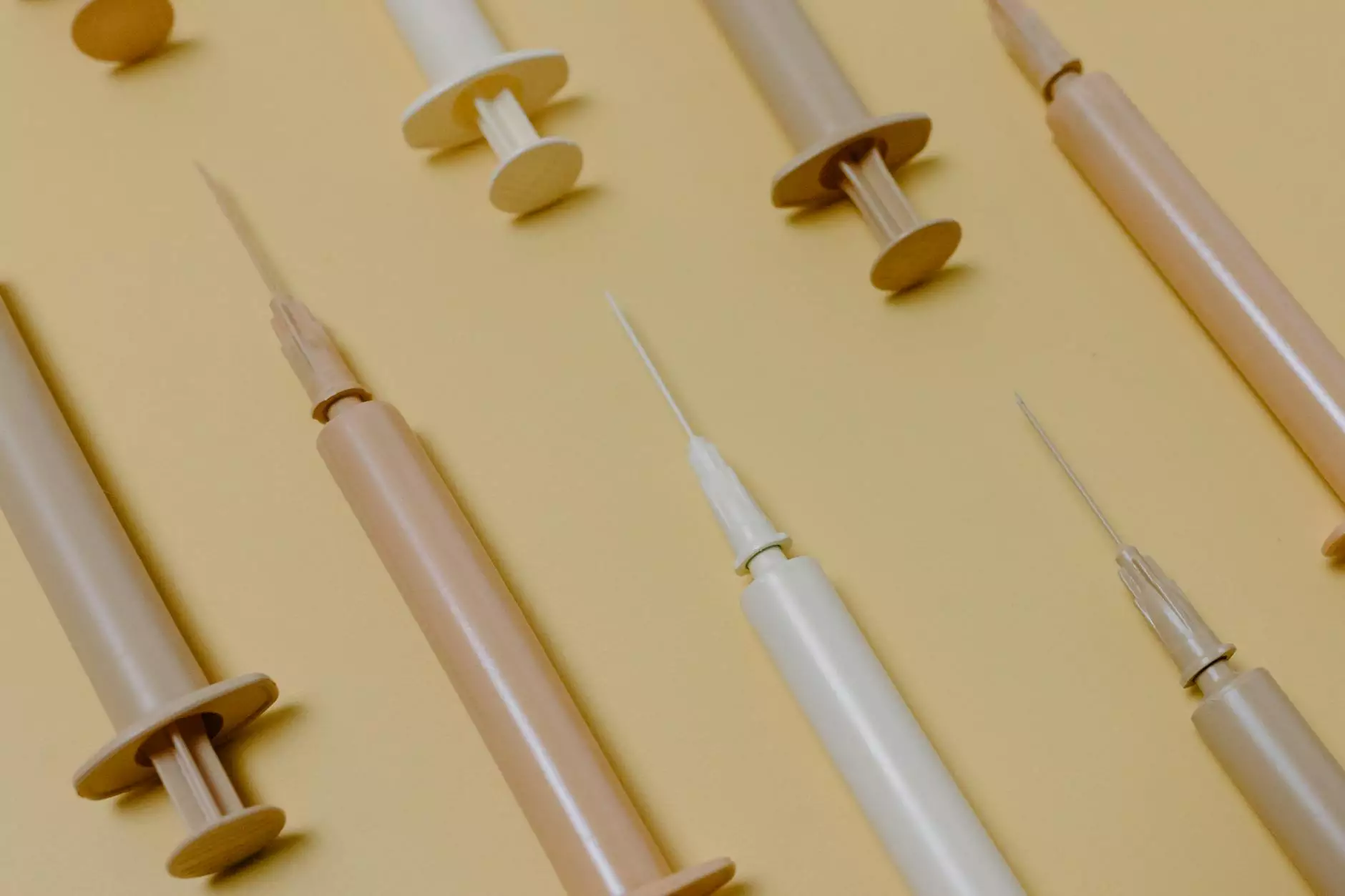Understanding Horse Injection: A Comprehensive Guide

The world of equine care is vast, with myriad techniques and methods that ensure the health and well-being of our beloved horses. Among these, horse injection plays a critical role in veterinary medicine, acting as a primary mode of administering vital medications. In this article, we will delve deeply into horse injections, exploring their types, benefits, procedures, and considerations in detail.
What is a Horse Injection?
A horse injection typically refers to the process of delivering medication directly into a horse's body using a needle and syringe. This method is essential for several reasons:
- Immediate Absorption: Injections allow for rapid delivery of medications into the bloodstream.
- Precise Dosage: Veterinary professionals can administer exact amounts tailored to the horse's specific needs.
- Various Applications: Injections can be used for vaccines, anti-inflammatory drugs, antibiotics, and hormone therapies.
Types of Horse Injections
Understanding the types of horse injections is crucial for any horse owner or equestrian. The most common types include:
1. Intramuscular Injections
Intramuscular injections are given directly into the muscle. Common sites include the neck, shoulder, or hindquarters. This method is often used for:
- Vaccines: Essential for disease prevention.
- Antibiotics: Used to treat infections.
- Anti-inflammatories: Help manage pain and inflammation due to injuries or conditions like arthritis.
2. Subcutaneous Injections
Subcutaneous injections are administered into the layer of tissue beneath the skin. This technique is less invasive and is suitable for:
- Vaccines: Certain vaccines can be effectively administered subcutaneously.
- Fluids: To rehydrate or provide nutrients in specific scenarios.
3. Intravenous Injections
Intravenous injections are administered directly into the bloodstream through the veins. This method allows for:
- Rapid Action: Ideal for emergency medications that need immediate effects.
- Specific Medications: Some drugs are only effective when given directly into the bloodstream.
The Importance of Horse Injections
Horse injections facilitate vital health measures for equines, playing an essential role in managing their health and performance. Here's why they matter:
1. Preventative Care
Preventative care is paramount in maintaining the health of horses. Vaccinations delivered through horse injections can shield them from contagious diseases and infections that could otherwise lead to severe complications or even death.
2. Treatment of Ailments
When horses fall ill or sustain injuries, timely treatment is crucial. Injections enable veterinarians to administer essential medications swiftly, improving recovery outcomes and significantly enhancing the horse’s life quality.
3. Performance Optimization
For competitive horses, maintaining peak condition is essential. Injections can help manage pain, inflammation, and injuries, ensuring that the horses are fit for competition and enjoying their work without discomfort.
Procedure for Administering Horse Injections
Administering injections is a procedure that should ideally be performed by a qualified veterinarian. However, understanding the basic methodology is beneficial for horse owners. The following steps outline the general process:
1. Preparation
When preparing for a horse injection:
- Ensure you have the correct medication, dosage, and equipment ready.
- Choose a calm and quiet environment to minimize stress for the horse.
2. Restraining the Horse
To administer the injection safely:
- Use a halter and lead rope to control the horse’s movements.
- Consider having a helper to assist in holding the horse if needed.
3. Location Identification
Identify the correct site for the injection:
- For intramuscular injections, feel for muscle density in the neck or hindquarters.
- For subcutaneous injections, pinch the skin to form a flap for easier access.
4. Injection Administration
Once ready, follow these steps:
- Clean the injection site with an alcohol swab to prevent infections.
- Insert the needle at the correct angle and quickly deliver the medication.
- Withdraw the needle and apply gentle pressure to the injection site.
Post-Injection Care
After administering a horse injection, it's crucial to monitor the horse for any adverse reactions. Here’s what to keep in mind:
1. Observation
Keep an eye on the horse for at least an hour post-injection:
- Watch for signs of allergic reactions, such as swelling or difficulty breathing.
- Monitor the injection site for excessive swelling or discharge.
2. Follow-up Care
Depending on the medication administered, follow any instructions given by the veterinarian. This may include limiting physical activity or administering follow-up doses at specific intervals.
Common Concerns Regarding Horse Injections
There are several concerns and misconceptions surrounding horse injections. Let’s addresses some of them:
1. Pain and Discomfort
While some discomfort might occur with injections, veterinarians typically choose the least painful methods available. Proper technique can minimize pain, and horses often recover quickly.
2. Side Effects
Every medication has potential side effects. Consultation with a veterinarian will ensure you’re informed about what to expect and how to address any reactions.
3. Antibiotic Resistance
One major concern in veterinary medicine is antibiotic resistance. It’s essential to use these medications responsibly, only when necessary, and to follow prescribed guidelines.
Conclusion
In summary, horse injections are a cornerstone of equine veterinary care, enabling swift treatment, preventive measures, and pain management for our four-legged friends. Understanding the nuances of this procedure, from types to post-care recommendations, empowers horse owners to take proactive steps toward their horse’s health. Should you have concerns regarding injections or your horse's overall medical care, consulting with a qualified veterinarian is essential to ensuring that your horse remains healthy, happy, and performing at its best.
For more information on ensuring the best medical care for your equine companions, visit us at Racehorse Med Care to explore our dedicated services in veterinary pharmacy and pet care.



